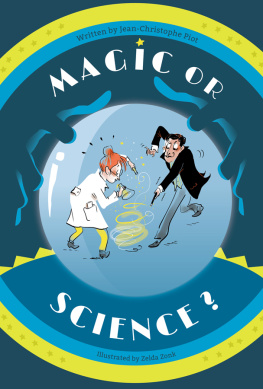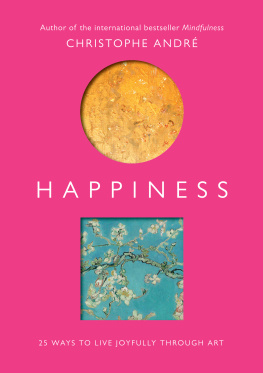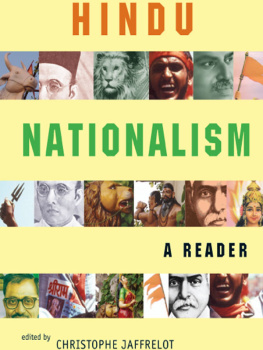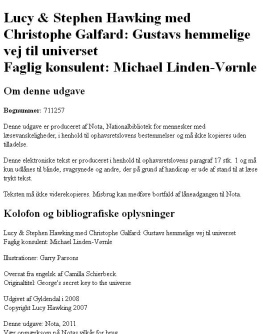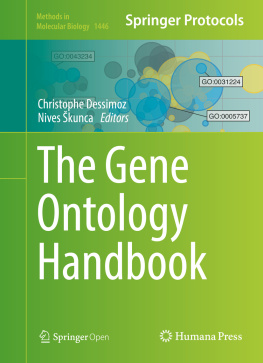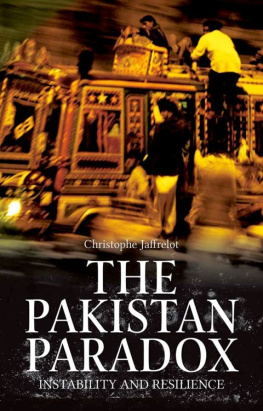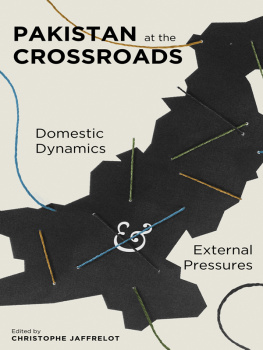Jaffrelot Christophe - The Islamic Connection
Here you can read online Jaffrelot Christophe - The Islamic Connection full text of the book (entire story) in english for free. Download pdf and epub, get meaning, cover and reviews about this ebook. year: 2017, publisher: Penguin Random House India Private Limited, genre: Religion. Description of the work, (preface) as well as reviews are available. Best literature library LitArk.com created for fans of good reading and offers a wide selection of genres:
Romance novel
Science fiction
Adventure
Detective
Science
History
Home and family
Prose
Art
Politics
Computer
Non-fiction
Religion
Business
Children
Humor
Choose a favorite category and find really read worthwhile books. Enjoy immersion in the world of imagination, feel the emotions of the characters or learn something new for yourself, make an fascinating discovery.

- Book:The Islamic Connection
- Author:
- Publisher:Penguin Random House India Private Limited
- Genre:
- Year:2017
- Rating:4 / 5
- Favourites:Add to favourites
- Your mark:
- 80
- 1
- 2
- 3
- 4
- 5
The Islamic Connection: summary, description and annotation
We offer to read an annotation, description, summary or preface (depends on what the author of the book "The Islamic Connection" wrote himself). If you haven't found the necessary information about the book — write in the comments, we will try to find it.
The Islamic Connection — read online for free the complete book (whole text) full work
Below is the text of the book, divided by pages. System saving the place of the last page read, allows you to conveniently read the book "The Islamic Connection" online for free, without having to search again every time where you left off. Put a bookmark, and you can go to the page where you finished reading at any time.
Font size:
Interval:
Bookmark:


LAURENCE LOUR

PENGUIN BOOKS

PENGUIN BOOKS
Christophe Jaffrelot is CNRS Research Director at the Sciences Po Centre for International Studies (CERI), which he directed from 20008. A specialist of society and politics in South Asia, he is the editor and author of numerous books, including Religion Caste and Identity in India (Hurst and Columbia University Press) and The Pakistan Paradox. Instability and Resilience (Hurst and Oxford University Press) and Pakistan at the Crossroads: Domestic Dynamics and External Pressures (Columbia University Press and Penguin India)
Laurence Lour is Associate Professor at the Sciences Po Centre for International Studies (CERI). An Arabist, Lour specializes in Middle East studies. Editor of Critique internationale from 2006 to 2017, she is the author, among other writings, of To Be An Arab In Israel (Hurst and Columbia University Press), Transnational Shia Politics (Hurst and Columbia University Press) and Shiism and Politics in the Middle East (Hurst and Columbia University Press).
Vahid Brown is an historian of contemporary jihadism and of conflict in Central and South Asia. He is the co-author, with Don Rassler, of The Fountainhead of Jihad: The Haqqani Nexus, 19732012 (Hurst and Oxford University Press). A former fellow and instructor at the Combating Terrorism Center at West Point, he is a PhD candidate in Near Eastern studies at Princeton University.
A CNRS Senior Research Fellow at the Centre for Turkish, Ottoman, Balkan and Central Asian Studies (CNRS, EHESS and Collge de France, Paris), Stphane A. Dudoignon is an historian of intermediary social groups and institutions, from tribal chieftainships to madrasa networks via professional unions of employers, in the former Soviet South and in the Middle East. Recent publications include (ed. with Christian Noack) Allahs Kolkhozes: Migration, De-Stalinisation, Privatisation and the New Muslim Congregations in the Former Soviet Realm (1950s2000s) (Klaus Schwarz), and The Baluch, Sunnism, and the State in Iran: From Tribal to Global (Hurst and Oxford University Press).
Simon Wolfgang Fuchs is a Research Fellow in Islamic Studies at Gonville & Caius College, University of Cambridge, and interested in questions of transnational Islam, religious authority, and renegotiations of the Islamic scholarly tradition in the modern and contemporary Middle East and South Asia. Simons PhD dissertation, which he completed at Princeton Universitys Department of Near Eastern Studies in 2015, focuses on Shia Islam between the local and the transnational in late colonial India and Pakistan. He is currently working on a comparative project that investigates the diverging global conceptions and continuing importance of the Islamic schools of law, the madhahib, since the mid-nineteenth century.
Antonio Giustozzi holds a PhD from the LSE (International Relations) and a BA in Contemporary History from the University of Bologna. He worked at the Crisis States Research Centre (LSE) until January 2011. He served with UNAMA (United Nations Assistance Mission to Afghanistan) in 20034. His recent publications include The Army of Afghanistan. A Political History of a Fragile Institution (Hurst) and Missionaries of Modernity. Advisory Missions and the Struggle for Hegemony in Afghanistan and Beyond , with Artemy Kalinovsky (Hurst).
Radhika Gupta received a PhD in Sociocultural Anthropology from the University of Oxford. She was subsequently a post-doctoral fellow at the Max Planck Institute for the Study of Religious and Ethnic Diversity and is currently a research fellow and faculty member at the Centre for Modern Indian Studies at Goettingen University.
Alix Philippon is Assistant Professor in sociology at Sciences Po Aix-en-Provence, France. Her work has mainly focused on the political dimensions of Sufism in Pakistan. She has notably analyzed the recomposition and mobilization of (neo-) Sufi orders and the nationalization of shrines. Her publications include Soufisme et politique au Pakistan. Le mouvement barelwi lheure de la guerre contre le terrorisme (Karthala), A lombre des sanctuaires. Traditions soufies au Pakistan (Les Indes Savantes), and articles in Critique internationale , Social Compass , Revue Internationale de Politique Compare , Commonwealth and Comparative politics and The Muslim World .
Don Rassler is an Assistant Professor in the Department of Social Sciences and Director of Strategic Initiatives at the Combating Terrorism Center at the US Military Academy at West Point. His research interests are focused on technology and innovation and understanding the changing dynamics of Afghanistans and Pakistans militant landscapes. He is the co-author of Fountainhead of Jihad: The Haqqani Nexus, 19732012 , a book released by Oxford University Press in 2013.
Ayesha Siddiqa is an independent scholar based in Islamabad. Having received her Ph.D. in War Studies from Kings College, London, Ayesha Siddiqa published two books on Pakistans military-arms procurement decision-making and military business. She was the first Pakistan Fellow at the Woodrow Wilson International Center for Scholars, a Ford Fellow, research fellow at Sandia National Laboratories, and a Charles Wallace Fellow at St. Antonys, Oxford University. Dr Siddiqa has taught at Johns Hopkins University, University of Pennsylvania and Quaid-e-Azam University. She was formerly a civil servant that includes her stint with the Pakistan Navy as Director of Naval Research. She is currently working on another book examining evolution of ideologies through interaction between Pakistan and the Arab world.
Samina Yasmeen is Director of the Centre for Muslim States and Societies (CMSS) and lectures in Political Science and International Relations in the School of Social Sciences, University of Western Australia (UWA), Perth. A specialist in political and strategic developments in South Asia (particularly Pakistan), the role of Islam in world politics, and citizenship among Muslim immigrant women, she is the author of Jihad and Dawah: Evolving Narratives of Lashker-e-Taiba and Jamat ud Dawah (Hurst), has edited Muslims in Australia: the Dynamics of Inclusion and Exclusion (Melbourne University Press), and is co-editor of Islam and the West: Reflections from Australia , and Muslim Citizens in the West: Spaces and Agents of Inclusion and Exclusion (Ashgate). Her current research focuses on women and jihad, as well as social inclusion and exclusion dynamics and citizenship among Muslim women in Australia.
South Asia and the Gulf countries are often seen as belonging to two different universes. Indeed, the contemporary geopolitical division of the world situates the former in Asia and the latter in the Middle East. This geographical slicing matches part of the dynamics that shape contemporary world politics, in which the Gulf, in great part because of the oil wealth, has emerged as a new economic, political and religious hub but also as an area of tension between Saudi Arabia and Iran, two states that struggle to impose themselves as representing true Islam and to lead the Muslim world. South Asia, for its part, tends to be seen from the Middle East mainly as a supplier of cheap labour to the Gulf and, as far as religion is concerned, as a recipient of orthodox Islamic religious influences from the Gulfbe they Sunni or Shiawhich rework the Indian Islamic civilization that developed in close relation with Sufism and Hinduism over several centuries.
Font size:
Interval:
Bookmark:
Similar books «The Islamic Connection»
Look at similar books to The Islamic Connection. We have selected literature similar in name and meaning in the hope of providing readers with more options to find new, interesting, not yet read works.
Discussion, reviews of the book The Islamic Connection and just readers' own opinions. Leave your comments, write what you think about the work, its meaning or the main characters. Specify what exactly you liked and what you didn't like, and why you think so.

